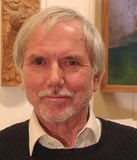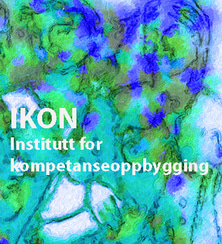"Since new knowledge and ideas are often met with skepticism and doubt about the competence of their male or female originators, I have found it necessary to describe the educational and experiential background for the development of the books on brain psychology and Linguistic Brain Therapy. The purpose is to ensure that criticism of brain psychology and linguistic brain therapy is directed at the research, knowledge, and conclusions, that is, at the professional aspects.
Lectures
Philip Dammen, leader of IKON, has given an extensive number of lectures on pedagogy, classroom management, creativity, educational psychology, theory of science, research methods, mental training and development, performance preparation, autogenic training, conflict resolution, presentation techniques, mental distress, psychological change, personnel development, psychological development, coping with unemployment, leadership, etc.
Problem Types
IKON has worked with generalized anxiety, phobias, panic disorders, needle phobia, consequences of substance abuse, depression, grief reactions, incest, setbacks, smoking cessation, gambling addiction, reactions to bullying, learning and exam anxiety, lack of impulse control, lack of self-confidence and self-worth, suicide, sleep problems, loneliness, anorexia, neurotic tendencies, setbacks and loss, burnout, obsessive thoughts, chaos feelings, aggression, blind violence, post-traumatic stress disorders, family violence, the desire to kill, self-harm, schizophrenic tendencies, hallucinations, unemployment and job searching, performance anxiety, conflict resolution, family therapy, and divorce issues, and the development of skill and coping ability."
Philip Dammen has scaled down the client work
Clients
IKON has worked with musicians, dancers, actors, athletes, leaders, teachers, researchers, politicians, lawyers, employees, children, youth, students, parents, and the elderly - with essentially the same methods.


Dr. philos Philip Dammen
Bakgrunn
Philip Dammen is Doctor of Philosophy based on a study of mental distress and psychological change. 1st amanuensis (emeritus) in pedagogy at the Norwegian Academy of Music. Wrote a thesis on educational psychiatry at the Institute of Social Pedagogy in 1976 and graduated from the Norwegian School of Journalism in 1982. He has worked in heavy psychiatry, youth psychiatry, as a prison officer, leader of a youth club, as a special educator, as a teacher in secondary school, as a journalist, with crisis psychiatry for the laid-off, with unemployment, and as a consultant in the business world in connection with personnel development, conflict resolution, leadership, and employee development. Philip Dammen has taught autogenic training and sports psychology and taken several courses in Neuro-Linguistic Programming. He has worked as a therapist since 1990 with individual therapy and some couples therapy and has worked with around 1000 clients. He has researched mental distress and psychological change since 1992, participated in several international conferences in the USA on research on mental distress and what works in treatment, attended seminars on behavior therapy in a social perspective, on solution-oriented therapy with Steve deShazer, on strategic therapy by Jay Haley, on postmodern therapy by Harlene Anderson, and several seminars on social constructionist philosophy and therapy by Kenneth Gergen, Tom Anderson, and Barry Duncan. Philip Dammen has lectured on short-term therapy in psychiatric education at Gaustad Hospital under the leadership of Professor Svein Haugsgjerd and on his research at a seminar for researchers, at the Norwegian Academy of Music, and developed a book on 16 individual and family therapeutic directions, not yet published. He has had some articles in international scientific journals about the connection between logic and scientific psychological knowledge and the necessity of rewriting parts of psychology. He has developed a digital education in brain psychology and linguistic brain therapy, which is still in development and will be implemented in 2024. Several books stemming from earlier research and the books on brain psychology and linguistic brain therapy are under planning.
philipdammen4@gmail.com
(+47) 94294327
Socials
Contact
Philip Dammen, Dr. Philos
Founder of IKON / researcher, therapist, and emeritus assistant professor in pedagogy at the Norwegian Academy of Music


